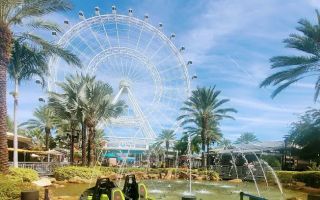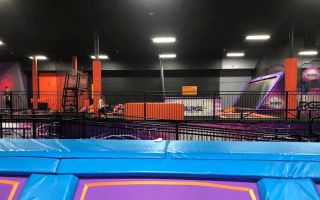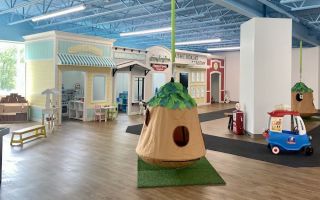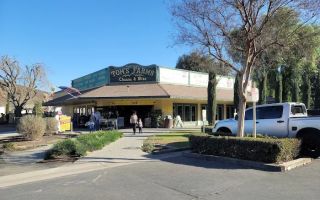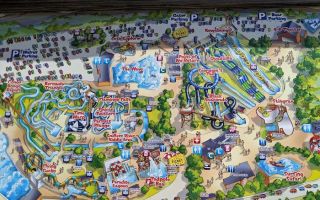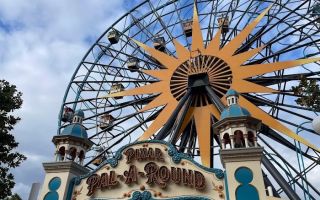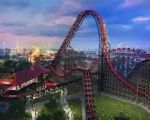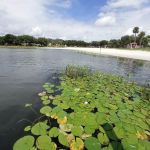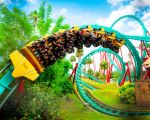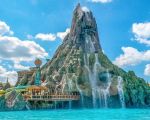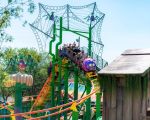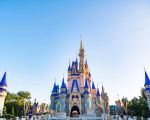What is the Difference Between Amusement Parks and Theme Parks?
- Introduction to Amusement Parks vs. Theme Parks
- Key Differences Between Amusement Parks and Theme Parks
- The Amusement Park Experience
- The Theme Park Experience
- Pricing and Costs: Amusement Parks vs. Theme Parks
- Which is Better for You? Amusement Park or Theme Park?
- Final Thoughts and Recommendations
Introduction to Amusement Parks vs. Theme Parks
If you're planning a family vacation or looking for some thrilling fun, you’ve likely heard the terms "amusement park" and "theme park" thrown around. Both offer exciting experiences, but they are not quite the same thing. So, what's the difference between an amusement park and a theme park? It’s a question that many first-time visitors might wonder about. Understanding the key distinctions between the two will help you choose the right experience based on your interests, budget, and expectations.
Amusement parks and theme parks both have rides, games, and attractions, but they differ in how they are organized, themed, and even priced. The distinction between these two types of parks is essential for visitors, especially for those planning a trip with kids or looking for a more immersive experience. Let’s dive into what sets these parks apart and which might be the better choice for your next adventure!
Key Differences Between Amusement Parks and Theme Parks
The key difference between an amusement park and a theme park comes down to the design and focus of the park. While both offer entertainment, the way they structure their attractions varies greatly.

Fun Spot America Theme Parks - Kissimmee
2850 Florida Plaza Blvd, Kissimmee, FL 34746, USA
1. Amusement Parks: Focus on Rides and Attractions
Amusement parks are typically built around rides and attractions that offer fun and excitement without a specific overarching theme. These parks usually feature roller coasters, water rides, and other attractions that are designed to be thrilling and entertaining. The primary focus is on providing fun experiences through various rides, games, and entertainment.
Many amusement parks have areas that offer a variety of attractions, but they are not organized around a specific theme or storyline. For example, a park like Six Flags focuses on creating a variety of ride experiences, from heart-pounding coasters to more laid-back options like bumper cars. Visitors are treated to a series of unrelated attractions, each offering a different kind of excitement, without necessarily tying everything together under a single theme.
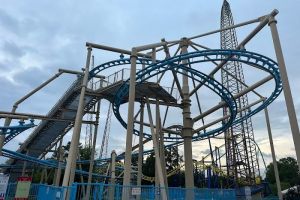
Kiddy Hawk
300 Carowinds Blvd, Charlotte, NC 28273, USA
2. Theme Parks: Immersive Experiences and Storytelling
In contrast, theme parks are known for their immersive experiences that are built around a central theme or storyline. Everything in a theme park – from the rides and attractions to the architecture, landscaping, and even the staff’s uniforms – is designed to fit within a cohesive theme. This might be a specific historical period, a movie franchise, or a fantastical world.
The most famous example of a theme park is Walt Disney World, where each section of the park is carefully curated to reflect a different part of Disney’s vast universe. From the enchanting fairy tale setting in Fantasyland to the futuristic world of Tomorrowland, every area is designed with a specific theme in mind, creating a fully immersive experience for visitors. The rides and attractions in a theme park are not just about the thrill; they’re about telling a story and allowing visitors to step into a different world.
The Amusement Park Experience
Amusement parks offer an experience that is typically less immersive than theme parks but can still be incredibly fun and thrilling. The main draw of an amusement park is the variety of rides, from exhilarating roller coasters to slower, family-friendly rides.
For instance, if you’re visiting an amusement park like Knott’s Berry Farm in California, you’ll find a mix of classic roller coasters, carnival-style games, and live shows. There’s no overarching theme beyond the fact that the park is designed to be a general entertainment experience. Visitors can enjoy the freedom to explore different areas with a focus on enjoying the fun of individual attractions.
Many amusement parks also include water parks, arcade games, and food stands, giving visitors a broad range of options without the confines of a specific narrative or theme. The atmosphere in an amusement park can often feel more casual, and the emphasis is on enjoying the thrill of the rides rather than being transported into another world.
The Theme Park Experience
Theme parks, on the other hand, provide a much more immersive experience. When you step into a theme park, you’re not just there to ride roller coasters; you’re entering a world that is designed to transport you into a completely different environment. For example, at Universal Studios, you’ll find yourself in the middle of a Jurassic Park-inspired world, complete with the sounds and sights of dinosaurs. The rides in theme parks are not just rides; they are often part of a larger narrative that is designed to make you feel like you’re a part of the story.
The theming extends beyond just the rides, though. Everything in a theme park is part of the experience. The architecture, music, food, and even the staff's interactions with visitors are all carefully curated to match the park’s theme. This level of detail creates an experience that is both thrilling and emotionally engaging, making it much more than just a collection of rides. Visitors to a theme park are looking for that sense of immersion, and theme parks deliver in spades.
Pricing and Costs: Amusement Parks vs. Theme Parks
One important factor to consider when choosing between an amusement park and a theme park is the cost. Theme parks, due to their highly immersive experiences and elaborate attractions, are typically more expensive than amusement parks. Tickets to places like Disney World or Universal Studios can cost significantly more than tickets to smaller amusement parks.
However, the extra cost of a theme park often comes with added value in the form of the immersive experiences, themed areas, and special attractions that amusement parks generally don’t offer. In some cases, theme parks also provide exclusive experiences, such as character meet-and-greets, behind-the-scenes tours, and special events that might make the higher price tag more worthwhile for families or dedicated fans of the park's theme.
Amusement parks, by comparison, are generally more affordable, with many offering lower entry fees. While they may lack the same level of theming, they still provide ample opportunities for fun. Many visitors appreciate the simplicity and affordability of amusement parks, making them a great option for those on a budget.
Which is Better for You? Amusement Park or Theme Park?
When it comes to deciding between an amusement park and a theme park, the best choice ultimately depends on your preferences and what you’re hoping to experience. If you’re looking for thrilling rides and a more casual atmosphere, an amusement park might be the right choice. On the other hand, if you want an immersive, story-driven experience that takes you into a whole new world, a theme park will provide exactly that.
It’s also important to consider the age and interests of your travel companions. Families with young children might find that a theme park offers more engaging experiences with beloved characters and immersive storytelling. On the other hand, thrill-seekers who want to experience the biggest and fastest roller coasters might gravitate toward an amusement park.
Final Thoughts and Recommendations
Both amusement parks and theme parks offer unique and exciting experiences. If you're looking for more thrills and general fun, an amusement park could be the perfect destination for your next vacation. However, if you're after a more immersive, story-driven adventure, a theme park like Disney World or Universal Studios could be just what you're looking for.
For those who are torn between the two, consider what matters most to you—whether it's the variety of rides or the chance to experience a captivating story. You can’t go wrong with either option, but understanding the key differences will help you make a more informed choice. Whether you choose to explore the wild roller coasters of an amusement park or dive into the magical world of a theme park, there’s a world of fun waiting for you!
Want to learn more about exciting amusement parks and theme parks in the US? Visit Hickory Dickory Park for more information and to plan your next adventure!

